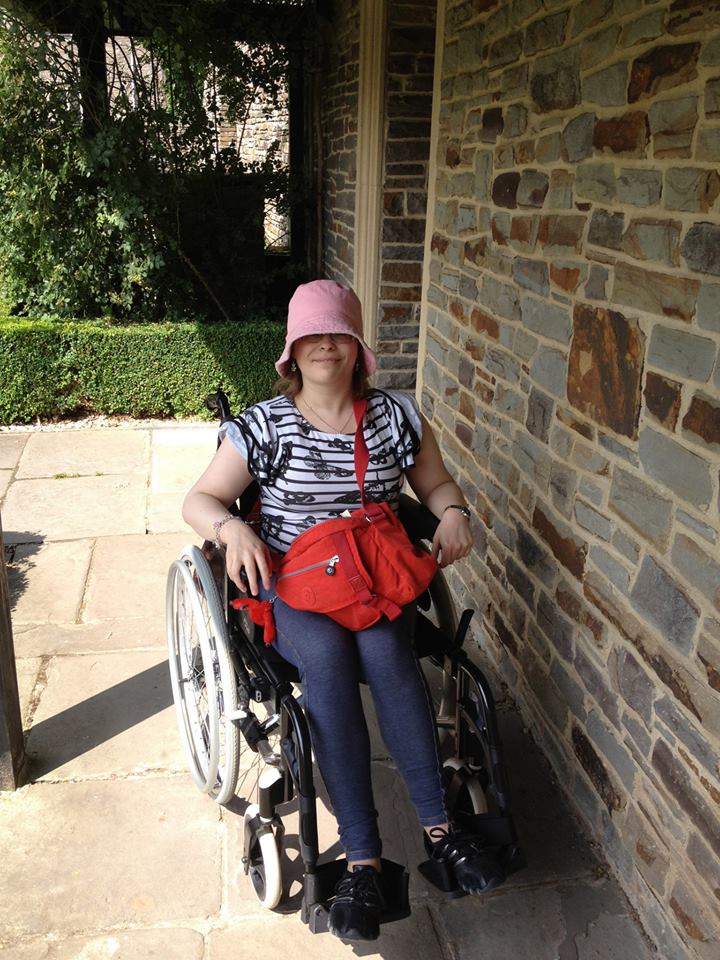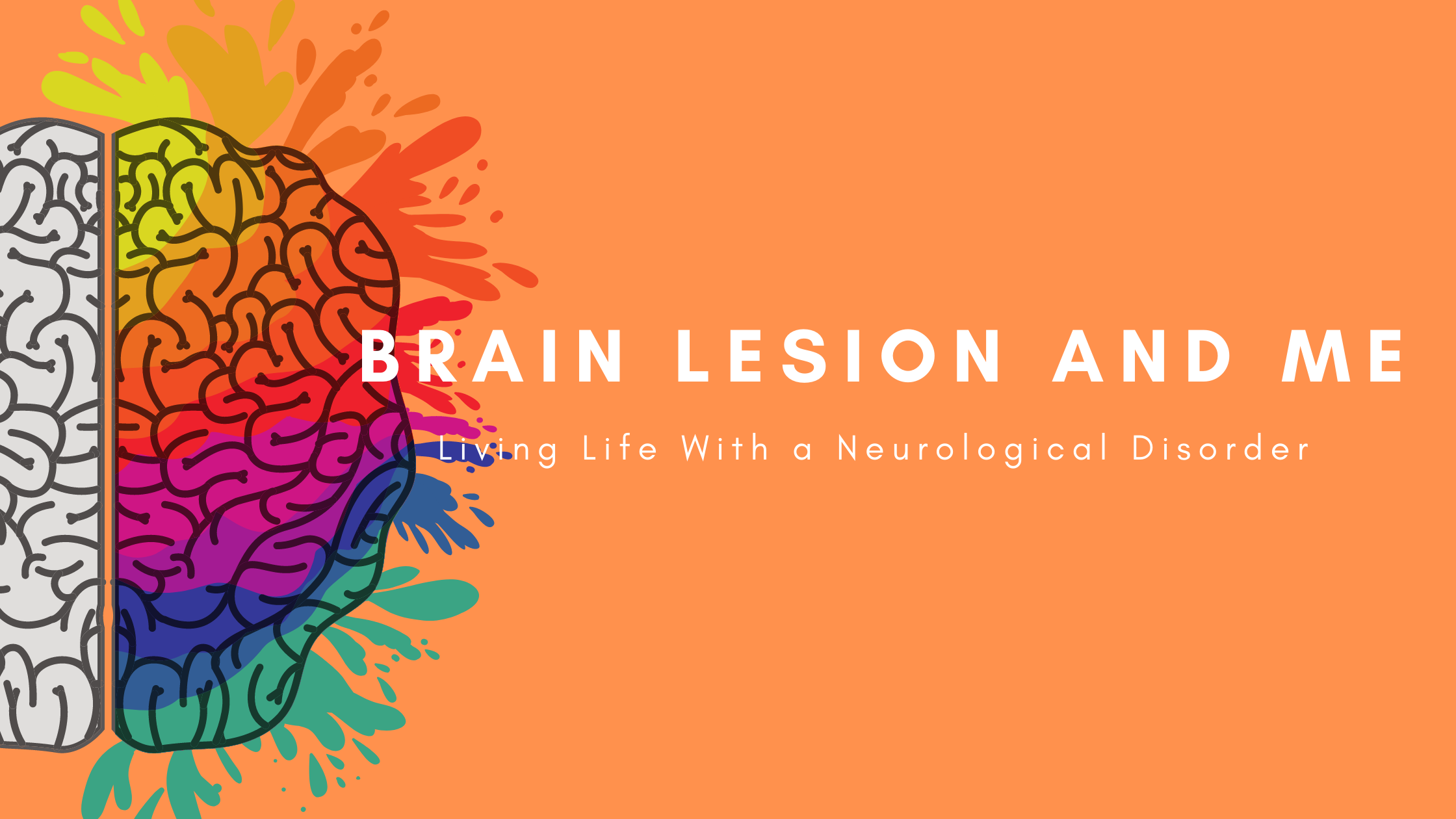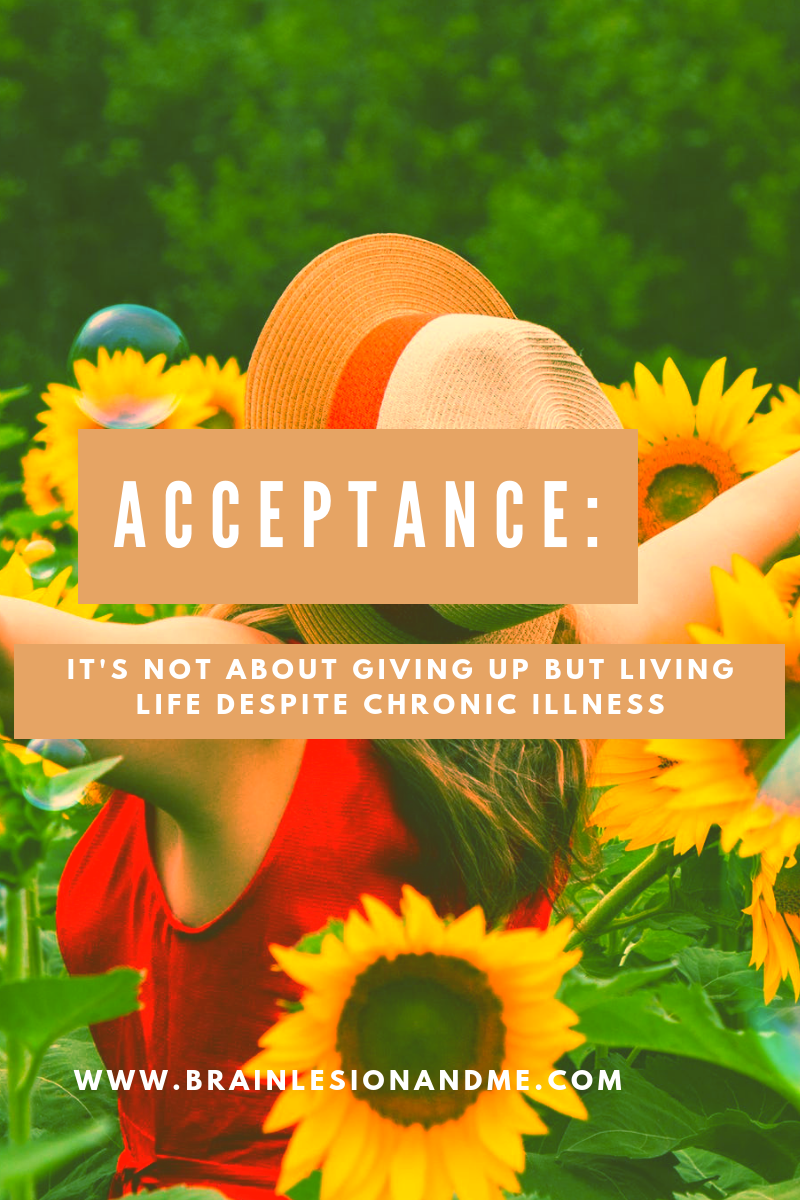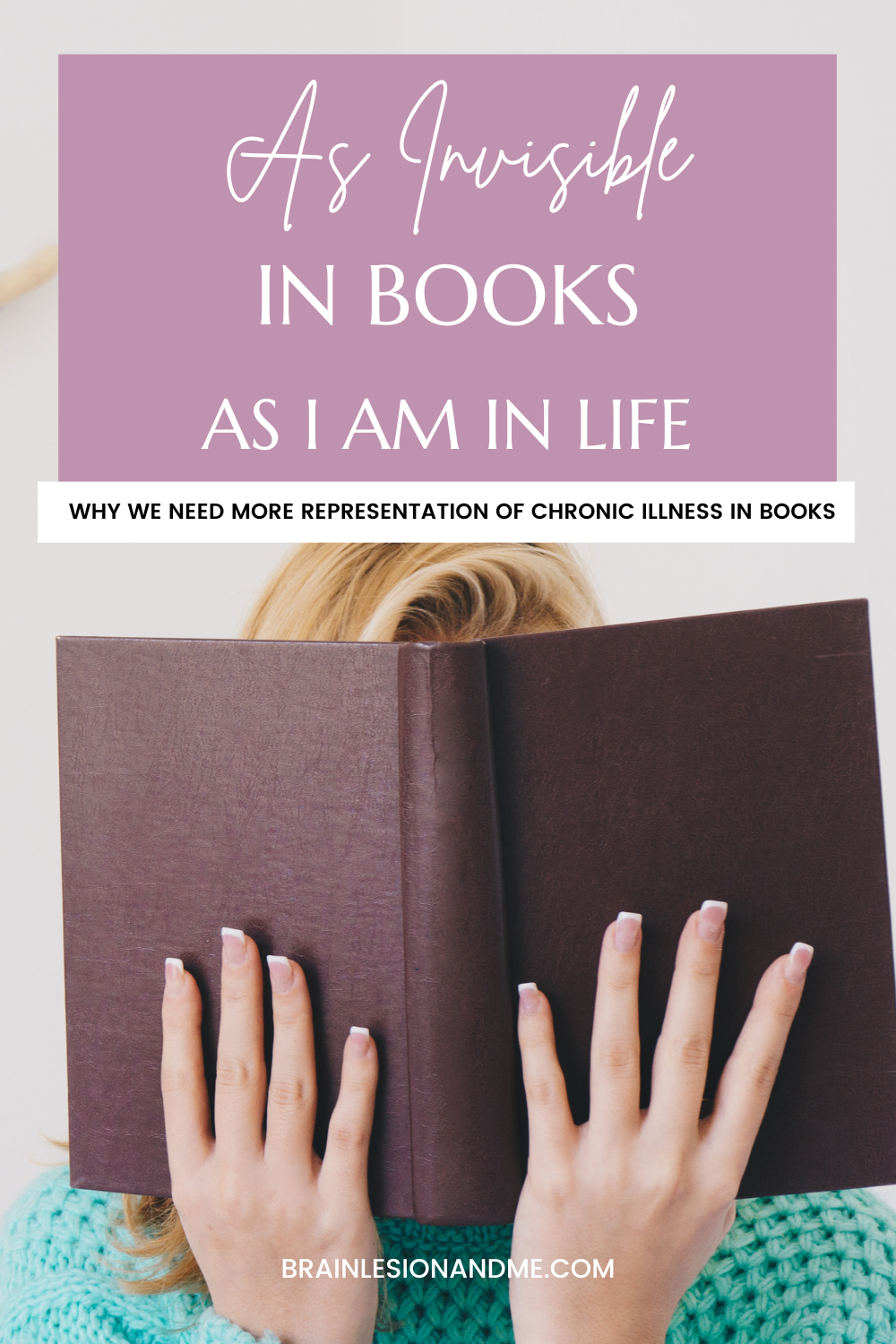Acceptance: It’s not about giving up but living life despite chronic illness
In 1969, the Swiss American psychiatrist Elizabeth Kübler-Ross published her groundbreaking book called ‘On Death and Dying’. In the book, she introduced the now famous ‘Five Stages of Grief’. Her theory suggested that there are five stages of adjustment after a loss, which are:
- Denial
- Anger
- Bargaining
- Depression
- Acceptance
The theory described the five stages of grief concerning the mourning of a loved one. However, these five stages have also been used to describe many areas that involve a loss.
These five stages of grief can also apply to a diagnosis of a chronic illness or the onset of a progressive disability. Mourning the loss of good health, the loss of a future that we may not have as a result of the diagnosis. And for the activities that we once enjoyed but which may be prevented by the symptoms of the chronic illness or disability.
[Tweet “The 5 Stages of Grief can be applicable when diagnosed with a chronic illness…”]

The 5 Stages of Grief
An example of these stages in action can be as follows:
Denial
We immediately are in denial of the new situation and cannot accept that it is true. Regarding chronic illness, we may question the doctor and ask whether he is confident that the diagnosis is correct. A request may be made for further investigations as we cannot accept the diagnosis as fact. We may also not be open to new medications or treatments suggested as that would mean the condition is real.
Anger
Like many others, anger is a normal feeling when living with chronic illness. We are angry at the illness itself due to the severe symptoms that it causes; angry at the limitations it places upon our lives; doctors who made the diagnosis as well as those who didn’t believe you. We are often angry at people around us who are still able to do all the things that we are no longer able to do. Anger is one of the five stages that those living with chronic illness reverts to, especially when symptoms are particularly severe.
[Tweet “Anger is a stage those living with chronic illness reverts to, especially when symptoms are severe.”]
Bargaining
Although anger stays for a while, we eventually progress to the third stage which is bargaining. Often, when living with a chronic illness, we become lost in a world of “What if” and “If Only” statements. We want to return to the life we had before illness, so we attempt to bargain with our bodies.
We promise that we will take all our medications correctly, and keep to a healthy diet in exchange for the condition to disappear. A promise is made to do anything in exchange for a cure and to be able to return to a normal life.
[Tweet “When living with a chronic illness we become lost in a world of “What If” and “If Only” statements.”]
Depression
As times passes; we slowly realise that bargaining isn’t working. As there is no sign of a cure or a return to our old life we begin to lose hope. Often, we slide into a depression. The depression isn’t a sign of a mental illness however but a response to the loss of our previous life. We turn inward and withdraw from life, and get stuck in a fog of sadness, despair and hopelessness.
[Tweet “As there is no sign of a cure or a return to our old life we can slide into depression.”]
Acceptance
The move into acceptance is a slow and gradual process. To reiterate it is not a state of being perfectly fine with being chronically ill but is perhaps a state in which we have more good days than bad ones.
However, this is not a single process. These five stages of grief are linear and one in which we often regress to previous steps. The need to work through them all over again, especially at times when the condition gets worse. As we worsen we return to the first stage of denial and we need to work through all the stages just like we did after the initial diagnosis. As our health deteriorates, we are essentially mourning the loss of another piece of ourselves.
[Tweet “Acceptance is about finally recognising and acknowledging the permanence of chronic illness.”]
The importance of acceptance can be brilliantly summed up by a famous quote by Joseph Campbell:

This post is about acceptance – to acknowledge the changes in our situation and declining health. It is not about being completely fine or deliriously happy about the illness or disability. Acceptance is about finally recognising and acknowledging the permanence and reality of life after diagnosis.
To learn to readjust to our new reality we need to embrace the life we have now. Acceptance is not about giving up.
[Tweet “Acceptance is not about giving up but to learn to readjust to our new reality.”]
I thought about the ‘Five Stages of Grief’ recently after a day out with my carer. As my regular readers may be aware, I have had to start using my wheelchair on a much more regular basis, especially when out for hours due to the worsening weakness in my legs.
Last week, my carer commented on how much more confident I seemed since I started using the wheelchair and how I seemed to enjoy days out much more. A reason for this is because I am in the wheelchair, I am not always on edge that my legs will give way, or on the days when the weakness is severe, I am not waiting for my legs to collapse.
However, as I also live with constant dizziness and regular bouts of vertigo and as a result of the continual movement while in the wheelchair, it was challenging for me to use it. So why do I seem so much more confident using the wheelchair than sitting down, and enjoying being out much more when it causes such symptoms?

Accepting the need for the wheelchair has made going out so much easier and more enjoyable
One possibility is that as suggested by the theory discussed, I have finally accepted that I need the wheelchair. Perhaps, I have finally moved through these five stages and now accepted my new reality. Before, I became worried not only about the wheelchair’s effect on my vestibular system but also with the judgements of other people. That however no longer is a concern of mine and happy to be in the wheelchair.
Perhaps, it is much easier to live with a new situation when we have reached acceptance. We need to embrace the new reality to live life to the fullest despite any limitations that chronic illness has placed upon our lives.
[Tweet “It is easier to live life despite the limitations of living with a chronic illness when we have reached acceptance.”]





onebreath
I think you’ve applied Kubler-Ross’s principles really well to what it is like to have a chronic illness. And it is so true that we cycle in and out of the different stages. Each new change or new symptom has the potential to throw us off and yet the hope is that we move to acceptance more quickly as we progress.
rhiannlouise
Thank you so much for your positive comment – I am so glad that the post is resonating with others.
Take care
Rhiann xx
Michele Valentine
I ponder this a lot… My life is like a roller coaster, full of ups and downs and always moving in and out of these stages over and over again as sypmtoms come and go moment by moment, day by day, and year by year. I too have come to acceptance with using my wheelchair. My initial embarrassment and concern about what others are thinking has been replaced with gratefulness to be out and about at all! Sometimes “bad” things turn out to be blessings. Thanks for your post. 🙂
rhiannlouise
Thank you for your lovely reply Michele and am glad that the post resonated with you. I am the same as you, I find I am constantly moving between these stages over and over because of the introduction of new symptoms or the worsening of others, and trying to find acceptance of my health status is a constant battle, especially when hospital appointments come round and more tests are requested or the diagnosis is questioned and I am right back at the start again! I am glad that like me, you have accepted your wheelchair and are grateful for it – exactly how I have felt about it! It’s a new friend now – keeping me safe and away from any potential falls or accidents!
Take care
Rhiann xx
Pingback: The Long Night | Julie's Spoonful of Sugar
Ashley
Hi Rhiann,
It’s very interesting to read how the stages of grief manifested in your life. I think acceptance is very powerful and liberating. I have also found that, after passing through these stages and reaching acceptance about my own health, I am more comfortable with things as they are and I’m learning to feel confident about the decisions I make — and learning to make harder ones. Judgment or fear of it really hinders, doesn’t it?
-Ashley
rhiannlouise
Hi Ashley
Thank you coming to the blog and taking the time to post a comment to the post, it really does mean a lot! I am glad that you have found acceptance with your own health and it has made you more comfortable and confident about where you are at with your health and in terms of making decisions regarding your care, etc. You are right, emotions such as the fear of being judged or fear itself really does hinder the decision making process and making new introductions in your life such as starting using a wheelchair or other mobility aids, but hopefully by truly accepting the need for them then the fear of being judged, etc will not matter.
Take care
Rhiann xx
Dystonia Muse
Rhiann, What a lovely post and so true. We may go back and forth between various stages but we ever move forward! -Pamela-
rhiannlouise
Again thank you so much for your support and lovely comments that you always find the time to make – it truly means a lot!
Cameron Von St James
Hey I have a quick question about your blog, could you email me when you have a chance? Thanks! -Cam
Pingback: Me & my MS: Finding “Normal” … Again | MS Means…Living and Laughing with Multiple Sclerosis
Pingback: Chronic Illness and The 5 Stages of Loss and Grief - Counting My Spoons
Belinda Castle
I can so relate to this. I developed MS at the age of 48, having previously lived a busy and active life. I progressed to needing a wheelchair after about five years, for the very reason you give, every step with my walking frame was a potential fall and I lived in a permanent state of fear. Going into the wheelchair was almost a relief. But it did mean that accepting was the only way to be. Now, after 11 years in the chair I live the best life I can. Sometimes this is pleasing and happy, other times deeply depressing and frustrating. It’s just a question of taking each day as it comes. Great post. Thank you!